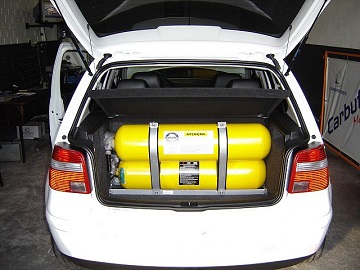The Federal Government of Nigeria has recently committed to adopting 88 international standards for Compressed Natural Gas (CNG) products to enhance the deployment of various CNG initiatives nationwide. This strategic move aims to facilitate the smooth integration of CNG systems into vehicles while ensuring that only quality products are utilized across the country. Dr. Ifeanyi Okeke, the Director-General of the Standard Organisation of Nigeria (SON), made this announcement during a statement commemorating World Standards Day in Abuja, underscoring the relevance of standards in fostering industrial growth and economic development.
The theme of this year’s World Standards Day is “Our Shared Vision for a Better World: Standards for Changing the Climate,” which highlights the relationship between established standards and their potential impact on sustainable practices. The adoption of these international standards comes amid rising concerns over safety, particularly regarding the risk of explosions associated with CNG vehicles. These concerns have prompted discussions about the adequacy of current safety regulations and the necessity of more stringent monitoring of CNG systems to mitigate potential hazards.
In response to these safety concerns, Dr. Okeke emphasized that the government’s adoption of these international standards is aimed at ensuring CNG products adhere to strict safety and quality benchmarks. This initiative aligns with a broader objective to transition towards sustainable energy solutions, showcasing how standards can play a pivotal role in renewable energy development, energy efficiency, and environmental sustainability. The SON is committed to supporting President Bola Ahmed Tinubu’s agenda, with the drafting of applicable quality controls that underpin the successful implementation of CNG initiatives in Nigeria.
Further expanding on the SON’s efforts, Okeke noted that the organization has proactively undertaken factory visits to certify CNG components in both China and India. These visits aim to prioritize safety and assure the quality of CNG components and kits utilized within the country. The SON is also involved in the creation of the Natural Gas Vehicles Monitoring System, meant to oversee the deployment of CNG systems and ensure standards are consistently upheld for quality assurance.
Dr. Okeke expressed confidence that the SON is dedicated to enhancing quality assurance and standardization, ultimately improving consumer trust while boosting the global competitiveness of locally produced Nigerian products. He insisted that the organisation’s commitment reflects a broader initiative to confront challenges posed by climate change through meaningful standardization practices. The collaboration and alignment with global Standards bodies are integral to the mission of contributing actively to the Sustainable Development Goals, promoting peace, prosperity, and welfare for both people and the planet.
In conclusion, the strategic adoption of international standards for CNG products by the Nigerian government embodies a concerted effort to balance industrialization with safety and environmental responsibility. By emphasizing rigorous safety measures and quality assurance for CNG vehicles, Nigeria is reinforcing its commitment to sustainable energy practices. International standards serve not just as regulatory frameworks, but as essential tools for fostering innovation, consumer protection, and national economic resilience as the country transitions to a cleaner energy future.














